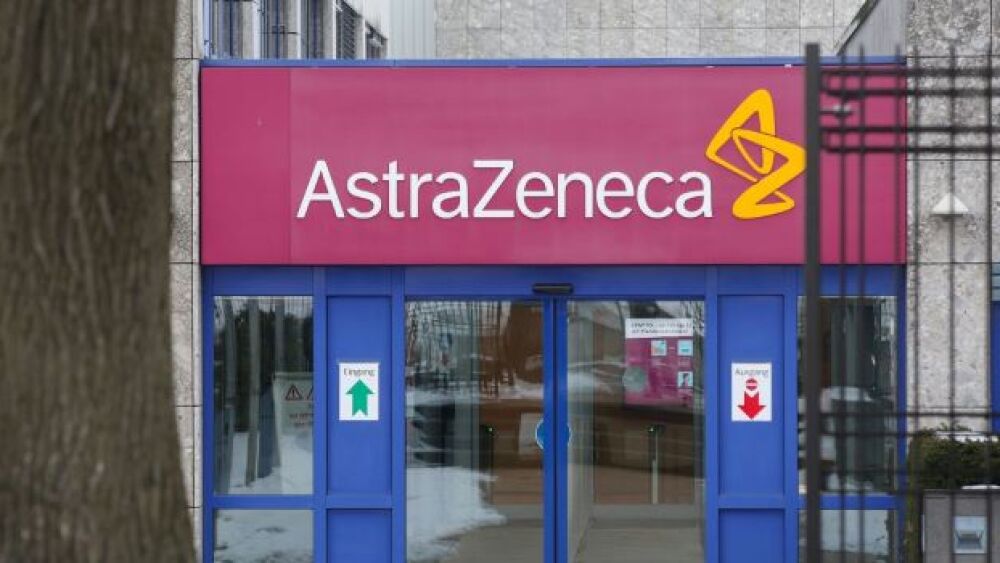AstraZeneca had a very busy week of international news, with progress being shown in China, positive recommendations for two drugs in Europe and a positive clinical trial update.
Bodo Marks/picture alliance via Getty Images
AstraZeneca had a very busy week of international news, with progress being shown in China, positive recommendations for two drugs in Europe and a positive clinical trial update. Here’s a look.
AstraZeneca Expanding in China
At a media event, He Jing, head of R&D China for AstraZeneca, told the Global Times that since the company upgraded its R&D facility to an R&D center in October 2021, staffing had increased by 21%. Jing said the Chinese government has placed great importance on innovation, with specific policies to develop talent and support companies.
“We are seeing a biopharmaceutical industrial cluster forming in China,” Jing said, adding that he believes the company’s R&D spending next year in the Shanghai R&D center will be two-and-a-half times larger than it was in 2020.
Last year, AstraZeneca’s China revenues grew 12% year-on-year to $6 billion. Its annual report suggested that innovation opportunities in China would be a key focus this year. The company also plans to participate in the 5th China International Import Expo held in Shanghai in November.
Imfinzi Plus Chemo Improves Responses in NSCLC
The company reported positive high-level data from an interim analysis of the AEGEAN Phase III trial of Imfinzi (durvalumab) with neoadjuvant chemotherapy before surgery in patients with resectable non-small cell lung cancer (NSCLC). The combination demonstrated a statistically significant improvement in pathologic complete response (pCR) compared to neoadjuvant chemotherapy alone. In addition, the company observed a statistically significant improvement in major pathologic response (MPR). The study will continue to evaluate the additional primary endpoint of event-free survival (EFS).
Imfinzi is a checkpoint inhibitor that binds to the PD-L1 protein and blocks the interaction of PD-L1 with PD-1 and CD80 proteins. The drug is being assessed in a number of studies by itself and in combination with other medications for small cell lung cancer (SCLC), NSCLC, bladder cancer, several gastrointestinal cancers, ovarian cancer, endometrial cancer and other solid tumors.
“Treating resectable lung cancer early provides the best chance for a cure, yet lung cancer will still recur within five years for the majority of patients despite chemotherapy and successful surgery,” Susan Galbraith, executive vice president, Oncology R&D, said. “Engaging the immune response with Imfinzi both before and after surgery is an exciting new strategy, and we hope these early findings from AEGEAN will lead to improved survival for lung cancer patients in this potentially curative setting.”
Enhertu and Lynparza Recommended for Approval in Europe
Earlier in the week, the European Medicines Agency’s Committee for Medicinal Products for Human Use (CHMP) made positive recommendations for two of AstraZeneca’s drugs. First, the CHMP recommended Lynparza (Olaparib), which the company is developing with Merck (MSD in Europe). The recommendation was for the drug as a monotherapy or in combination with endocrine therapy for the adjuvant treatment of adults with germline BRCA1/2 mutations (gBRCAm) who have HER2-negative high-risk early breast cancer and that have previously been treated with neoadjuvant or adjuvant chemotherapy.
Galbraith said, “If approved, Lynparza will become a new targeted treatment option for patients with germline BRCA-mutated HER2-negative early breast cancer in Europe. By treating patients with curative intent as early as possible in their disease, we hope to avoid life-threatening recurrence and give people more time with their loved ones.”
On the same day, the CHMP recommended AstraZeneca and Daiichi Sankyo’s Enhertu (trastuzumab deruxtecan) as a monotherapy for adults with unresectable or metastatic HER2-positive breast cancer who have received one or more previous anti-HER2-based regiments. Enhertu is a specifically engineered HER2-directed antibody-drug conjugate (ADC).
Giles Gallant, senior vice president, global head, oncology development, oncology R&D at Daiichi Sankyo, said, “Today’s CHMP opinion provides further validation of the significance of the DESTINY-Breast03 trial results, which for the first time showed superiority of Enhertu in prolonging progression-free survival in patients previously treated for HER2-positive metastatic breast cancer as compared to another HER2-directed ADC. This positive CHMP opinion is an important step forward in bringing this potentially practice-changing medicine to patients in Europe to use earlier in the treatment of HER2-positive metastatic breast cancer and builds on the recent approval of Enhertu in the U.S.”





